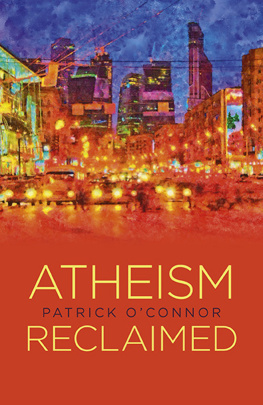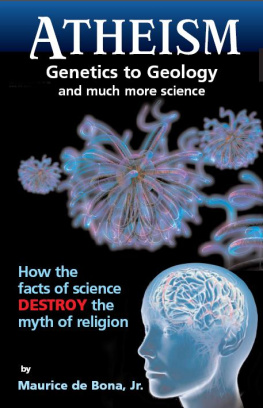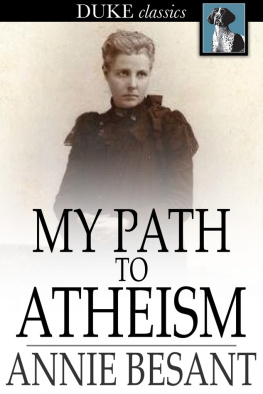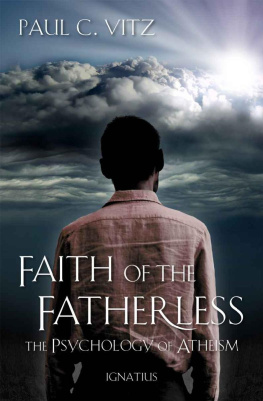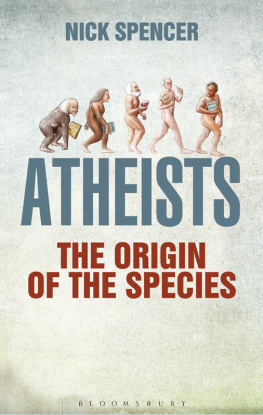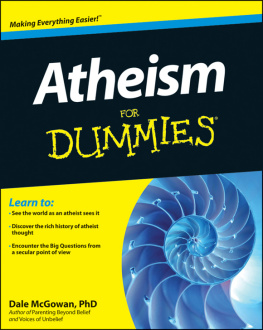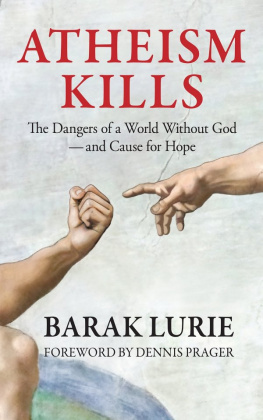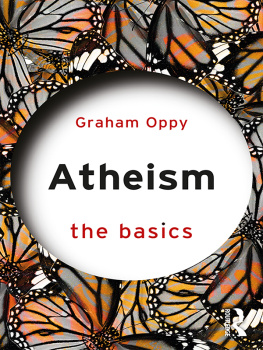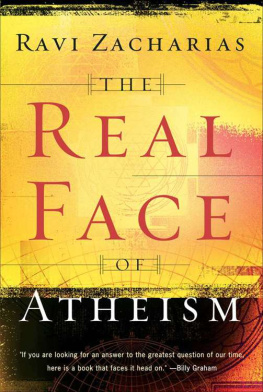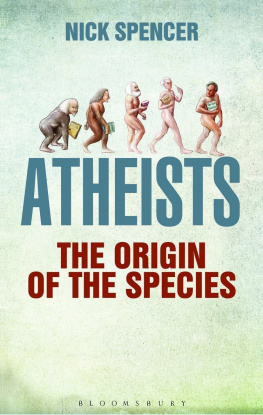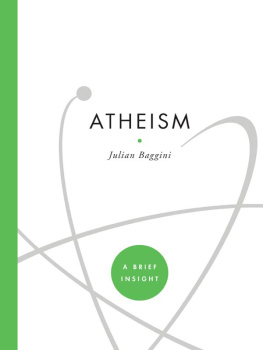First published by iff Books, 2014
iff Books is an imprint of John Hunt Publishing Ltd., Laurel House, Station Approach, Alresford, Hants, SO24 9JH, UK
www.johnhuntpublishing.com
www.iff-books.com
For distributor details and how to order please visit the Ordering section on our website.
Text copyright: Patrick OConnor 2013
ISBN: 978 1 78279 652 7
All rights reserved. Except for brief quotations in critical articles or reviews, no part of this book may be reproduced in any manner without prior written permission from the publishers.
The rights of Patrick OConnor as author have been asserted in accordance with the Copyright,
Designs and Patents Act 1988.
A CIP catalogue record for this book is available from the British Library.
Design: Stuart Davies
Printed and bound by CPI Group (UK) Ltd, Croydon, CR0 4YY
We operate a distinctive and ethical publishing philosophy in all areas of our business, from our global network of authors to production and worldwide distribution.
For Frances McGeehan as promised once on the Salmon Weir Bridge in Galway.
Introduction
Atheism has lost its soul; contemporary atheism is losing its vitality and it needs to reaffirm it. What is called atheism has lost vibrancy, mattering less and less. It is not relevant to understanding the nihilistic drive to destruction that is affecting all aspects of human experience from political organization, to the environment, to overpopulation. Personal proclamations of atheism and the attendant scientific appeals to evidence, questioning, humanism and critique are simply not relevant. Atheism needs to get its house in order. The task is to give a vital and positive account of atheism. Atheism cannot simply be a negation, but must take a position in its own right with positive philosophical consequences.
When American President Barack Obama gave his Inauguration Speech in 2008 he included reference to atheists. This was rightly celebrated and most welcome. It was, however, a limited reference in that it defined atheism as just another existing stakeholder in society, an option among many potential lifestyle choices. Without doubt its mention was a progressive step in highlighting the importance of atheism for public discourse; however, it did not go far enough, as it evacuated atheism of its potential for universal appeal. This book is an attempt to remedy this situation by offering two things. Firstly, in an effort to present a radical atheism, I would like this text to encourage dialogue within atheism in an effort to help it revitalize itself. Secondly, the text attempts to create a grammar of a more radical atheism, as well as an appeal to atheists to transform their existing practices.atheism. This will involve gleaning insights from Karl Marx, Friedrich Nietzsche, Martin Heidegger, Jean-Paul Sartre, Paolo Virno, and Jacques Rancire among others. However, I sincerely address this text to all and in good cheer. It is not intended to condemn or condone, merely to open up a possible space of discourse to help atheism become more relevant to human life.
The question of relevance is important. Without wanting to denounce the totality of what I call scientific or materialist atheism, which is to say the atheism based on the evidential explorations of science as best evidenced in the writings of Sam Harris, Richard Dawkins and Daniel Dennett I would claim that in terms of the real existential and political realities that are currently facing the world, these intellectual gambits are sorely lacking. Life existence is becoming increasingly cheap: culture is slowly eroding, entrepreneurial life is hollowing out meaning, and political life itself is worth nothing. In this malaise, it is as if nothing is any longer worthy of fidelity or commitment, and that this is happening in countries that have been most notably bequeathed the Enlightenment legacy is most worrying. For the scientific atheist, here is a truth worth heeding. The political and social clout of what has recently been called new atheism has obviously failed to grab the imagination of large swathes of the populace. This is because one can only be committed to meaningful political interventions. A call for reason and scientific inquiry does not galvanize populations, nor does it provide a remedy to the rise of nihilism which is so often associated, fairly or not, with the centrality of science to intellectual life. With respect to the aforementioned authors, their work only takes us so far. When one thinks of overpopulation, the melting ice-caps, war and genocide, the atheist is not the first person one thinks of calling. Certainly it might be argued that the scientist is the best person to approach on climate change, but not in terms of the lived factuality of humans existing in the world, who have to grapple daily with the enormity of these undeniable problems. Moreover, atheism does not feature in most political manifestos, economic discussions to solve the financial crisis, or with regard to any policy on public health. The scientific materialist may argue that the world would be a better place if scientists were put in charge of our governments, but in terms of real world problems the ethos of scientific materialism is strikingly ossified as a galvanizing force with purpose. This is because there is a serious disjunction between the meaning of scientific expertise and the vagaries of human reality. However, still, this book is not a critique of scientific atheism, but an attempt both to transgress and to complement it with a more profound atheism.
In philosophical terms, we can trace the source of the split between scientific and humanist accounts of the human to the oft-unspoken split between existential and scientific atheism; a split that in philosophical circles has played itself out in the rivalries between European and Analytic Philosophy. For this reason, Stephen Hawkings recent proclamation of the death of philosophy ought to sound more caustic to analytic ears than it does to continental philosophers. The reason for such comparative ease and unease is instructive. Analytic philosophy has prided itself on its rigour and its contribution to the progression of science, whereas some of the main champions of Continental Philosophy have remained wholly sceptical towards the contribution of science to the progress of humankind. Thinkers beginning with Nietzsche and on to Heidegger, Albert Camus, Sartre, and the Frankfurt school, believed that the scientific and Enlightenment tradition bears some consonance with the legacy and continuance of European nihilism. Ameliorating this split is important for our understanding of the role of any radical atheism.
A more profound atheism will, I argue, offer a more universal and expansive sense of being human and allow humans to confront the question of nihilism circumventing the worst manifestations of the hollowing-out of civility and ethics. As
The atheism I will here propose takes the tradition of continental philosophy seriously. This is because it attempts to overcome the drive to nothingness and death which the mechanistic worldview of modern science has inaugurated. The point remains germane to this discussion. True atheism has to ground its actions in concrete and practical life and must be divorced from deathly mechanism, and the reduction of humans into brute objects of study. Nihilism, as defined by Nietzsche, indicates that our contemporary culture is suffering from an historical malady: the belief in nothing and the desire to perpetuate that nothing. This is axiomatic. The world is in a lot of trouble, engaging in seriously destructive tendencies. This is why Nietzsche the thinker with whom we begin this book of course is not an atheist, at least not in the conventional sense, and this radicalization of atheism is decisive for reconstructing any atheist or humanist endeavour. For Nietzsche, a committed scientific thinker such as Dawkins, or eliminative materialists such as Paul and Patricia Churchland, would be utterly symptomatic of the nihilistic illness: nature offers us nothing more than the sum total of material facts.

